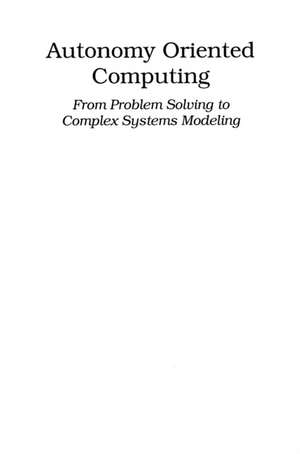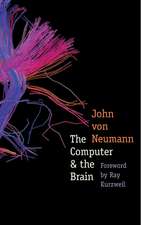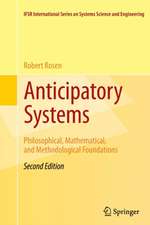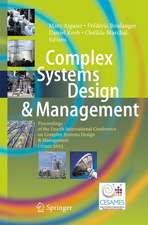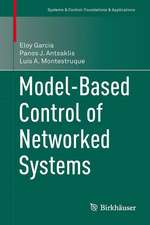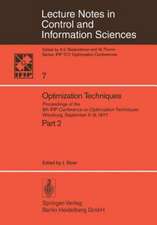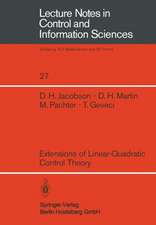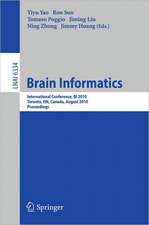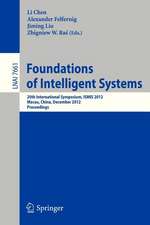Autonomy Oriented Computing: From Problem Solving to Complex Systems Modeling: Multiagent Systems, Artificial Societies, and Simulated Organizations, cartea 12
Autor Jiming Liu, XiaoLong Jin, Kwok Ching Tsuien Limba Engleză Hardback – 3 dec 2004
Part One describes the basic concepts and characteristics of an AOC system and enumerates the critical design and engineering issues faced in AOC system development. Part Two gives detailed analyses of methodologies and case studies to evaluate AOC used in problem solving and complex system modeling. The final chapter outlines possibilities for future research and development.
Numerous illustrative examples, experimental case studies, and exercises at the end of each chapter of Autonomy Oriented Computing help particularize and consolidate the methodologies and theories presented.
| Toate formatele și edițiile | Preț | Express |
|---|---|---|
| Paperback (1) | 385.47 lei 43-57 zile | |
| Springer Us – dec 2010 | 385.47 lei 43-57 zile | |
| Hardback (1) | 394.51 lei 43-57 zile | |
| Springer Us – 3 dec 2004 | 394.51 lei 43-57 zile |
Preț: 394.51 lei
Nou
Puncte Express: 592
Preț estimativ în valută:
75.50€ • 78.34$ • 63.10£
75.50€ • 78.34$ • 63.10£
Carte tipărită la comandă
Livrare economică 17-31 martie
Preluare comenzi: 021 569.72.76
Specificații
ISBN-13: 9781402081217
ISBN-10: 1402081219
Pagini: 252
Ilustrații: XXXII, 216 p. 57 illus.
Dimensiuni: 155 x 235 x 19 mm
Greutate: 0.57 kg
Ediția:2005
Editura: Springer Us
Colecția Springer
Seria Multiagent Systems, Artificial Societies, and Simulated Organizations
Locul publicării:New York, NY, United States
ISBN-10: 1402081219
Pagini: 252
Ilustrații: XXXII, 216 p. 57 illus.
Dimensiuni: 155 x 235 x 19 mm
Greutate: 0.57 kg
Ediția:2005
Editura: Springer Us
Colecția Springer
Seria Multiagent Systems, Artificial Societies, and Simulated Organizations
Locul publicării:New York, NY, United States
Public țintă
ResearchCuprins
Fundamentals.- From Autonomy to AOC.- AOC at a Glance.- Design and Engineering Issues.- A Formal Framework of AOC.- AOC in Depth.- AOC in Constraint Satisfaction.- AOC in Complex Systems Modeling.- AOC in Optimization.- Challenges and Opportunities.
Textul de pe ultima copertă
Autonomy Oriented Computing explores the important theoretical and practical issues in AOC, by analyzing methodologies and presenting experimental case studies. The book serves as a comprehensive reference source for researchers, scientists, engineers, and professionals in all fields concerned with this promising new development in computer science. It can also be used as a main or supplementary text in graduate and undergraduate programs across a broad range of computer-related disciplines, including Robotics and Automation, Amorphous Computing, Image Processing and Computer Vision, Programming Paradigms, Computational Biology, and many others.
The first part of the book, Fundamentals, describes the basic concepts and characteristics of an AOC system, and then it enumerates the critical design and engineering issues faced in AOC system development. The second part of the book, AOC in Depth, provides a detailed analysis of methodologies and case studies to evaluate the use of AOC in problem solving and complex system modeling. The final chapter reviews the essential features of the AOC paradigm and outlines a number of possibilities for future research and development.
Numerous illustrative examples, experimental case studies, and exercises at the end of each chapter of Autonomy Oriented Computing help particularize and consolidate the methodologies and theories as they are presented.
The first part of the book, Fundamentals, describes the basic concepts and characteristics of an AOC system, and then it enumerates the critical design and engineering issues faced in AOC system development. The second part of the book, AOC in Depth, provides a detailed analysis of methodologies and case studies to evaluate the use of AOC in problem solving and complex system modeling. The final chapter reviews the essential features of the AOC paradigm and outlines a number of possibilities for future research and development.
Numerous illustrative examples, experimental case studies, and exercises at the end of each chapter of Autonomy Oriented Computing help particularize and consolidate the methodologies and theories as they are presented.
Caracteristici
Essential introduction that presents the basic concepts and characteristics of an AOC system Enumerates the critical design and engineering issues of AOC system development Examines the use of AOC in problem solving and complex system modeling Includes supplementary material: sn.pub/extras
